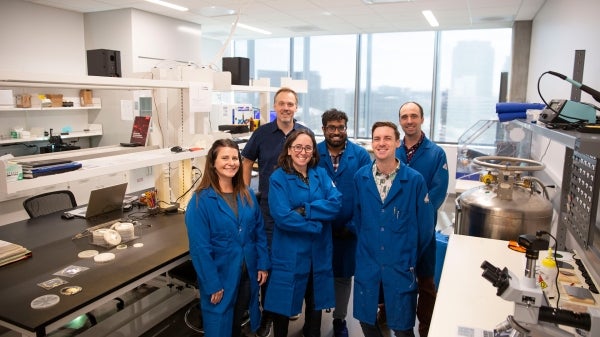New data shows impact of COVID-19 on transportation

Photo courtesy of Depositphotos.com
Just over a year ago, governments around the world issued stay-at-home orders, significantly changing day-to-day lives in an instant. Working from home, postponing travel, having groceries delivered to front doors and ordering “to go” at restaurants are just a few ways many habits have changed.
But which of these changes are likely to be maintained in a post-COVID-19 world?
Researchers from Arizona State University, alongside colleagues from the University of Illinois Chicago, conducted a nationwide survey to measure the potential for lasting changes and what they could mean for our cities.
“Many observers have put forth ideas about how the pandemic will change how we live for the long term, but nobody that we've seen has concrete evidence to support or refute these predictions,” said Deborah Salon, associate professor in ASU’s School of Geographical Sciences and Urban Planning and co-principal investigator of the COVIDFuture Survey. “We collected the data in order to provide this evidence, and we are sharing it so that it can be used to help plan for what's next.”
The COVIDFuture research team — which also includes Sybil Derrible, co-principal investigator and associate professor from the University of Illinois Chicago, and Ram Pendyala, professor with ASU’s School of Sustainable Engineering and the Built Environment — collected online survey responses from over 8,700 adults across the U.S. and weighted the dataset to be representative of the U.S. adult population.
The group is now releasing the full de-identified Wave 1 dataset to be used by city planners, businesses, researchers and others interested in understanding how people’s choices in the U.S. have evolved during the pandemic and their expectations for the future. The data include information about travel-related behaviors and attitudes.
Deborah Salon
“The data can be used to understand how the pandemic has affected people's choices about remote work and commuting, studying for adult students, restaurant dining, shopping, air travel, daily mobility and home location,” Salon said. “Importantly, the data include respondent expectations about what they plan to do post-pandemic in each of these areas, which can provide insights into the long-term effect of the pandemic on behavior.
“These data provide decision-makers with concrete information about what to expect in a post-pandemic ‘new normal,’ especially how people's choices will and won't differ from the pre-pandemic ‘normal.’”
For more information on the survey, visit covidfuture.org, with the data available for download here.
The COVIDFuture Survey is funded by the National Science Foundation, the Center for Teaching Old Models New Tricks at Arizona State University, the Knowledge Exchange for Resilience at Arizona State University and CONVERGE at the University of Colorado Boulder.
More Science and technology

ASU professor honored with prestigious award for being a cybersecurity trailblazer
At first, he thought it was a drill.On Sept. 11, 2001, Gail-Joon Ahn sat in a conference room in Fort Meade, Maryland.…

Training stellar students to secure semiconductors
In the wetlands of King’s Bay, Georgia, the sail of a nuclear-powered Trident II Submarine laden with sophisticated computer…

ASU startup Crystal Sonic wins Natcast pitch competition
Crystal Sonic, an Arizona State University startup, won first place and $25,000 at the 2024 Natcast Startup Pitch Competition at…
